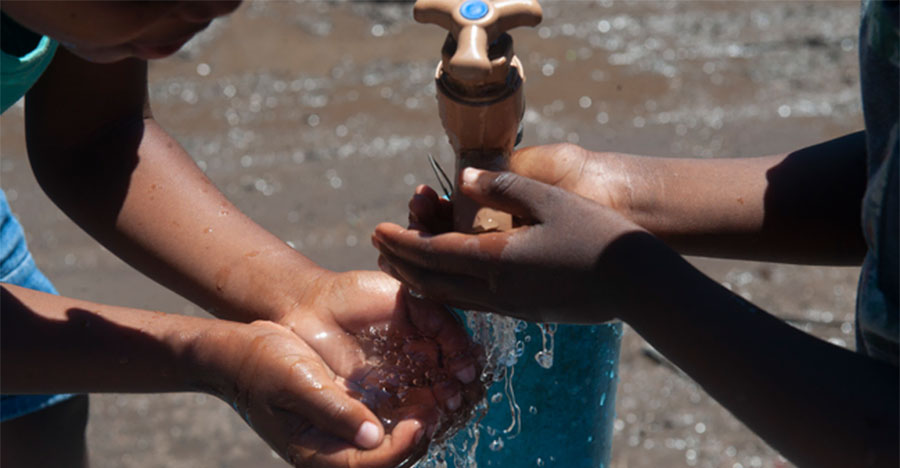Enteric fever is a potentially life-threatening infection. It includes typhoid fever (caused by the bacterium Salmonella Typhi) and paratyphoid fever (caused by the bacterium Salmonella Paratyphi A, B and C). These bacteria only infect humans, and humans are the only reservoirs. Transmission of the infection is by the faecal-oral route (through ingesting food or water that has been contaminated with faeces of an infected person).
According to the World Health Organization (WHO), every year an estimated 11–20 million people develop enteric fever and between 128 000 – 161 000 people die as a result. In countries endemic for enteric fever (endemic meaning the constant presence of a disease in a population within a geographic area), children aged 5 to 15 years of age are typically at highest risk for disease and children under 5 years of age are at the highest risk of death.
Of concern is that the global phenomenon of urbanisation (leading to overcrowded populations and inadequate water and sanitation systems) and climate change (leading to flooding events and water shortages) are poised to increase the global burden of disease. Increasing antibiotic resistance and the recent emergence of extremely drug-resistant enteric fever is making it easier for typhoid to spread and more difficult to treat. Safe and effective typhoid vaccines are available, and the WHO recommends that countries with very high burdens of disease or high burdens of antibiotic resistant S. Typhi include typhoid vaccination in their vaccination programmes.
Cape Town: Last week, the National Institute for Communicable Diseases (NICD) announced an outbreak of enteric fever (commonly known as typhoid fever) in the Western Cape and North West provinces.
The Western Cape has reported 64 cases in three separate outbreaks in the Cape Town Metro health district, the Cape Winelands and the Garden Route. The North West has reported 18 cases in the Dr Kenneth Kaunda district.
Typhoid fever is endemic to South Africa and is caused by Salmonella Typhi.
The disease is usually spread through contaminated water or food. Once the bacteria has been ingested, it multiplies and enters the bloodstream and intestinal tract.
Typhoid fever can be confirmed through blood testing.
What are the symptoms?
Persons with typhoid fever will have the following symptoms: prolonged high fever, fatigue, headache, nausea, abdominal pain, and constipation or diarrhoea.
How can typhoid fever be treated?
Patients can treat the disease by taking antibiotics as prescribed by health professionals.
Not preparing or serving others food, the World Health Organization (WHO) believes this will lower the chance of passing the infection on to someone else.
Having a health-care professional test whether the Salmonella Typhi bacteria has remained in your body.
How can you arm yourself against typhoid fever?
Individuals can get vaccinated against the disease. An injectable vaccine based on the purified antigen is available for people aged two years and older. A live attenuated oral vaccine in capsule formulation is available for people aged five and older.
* Make sure all food consumed is properly cooked.
* Avoid consuming raw milk products, drink only pasteurised or boiled milk.
* Avoid ice, unless you’re sure the water is safe for drinking.
* If the safety of the water is questionable, boil the water before drinking.
* Wash hands thoroughly and frequently using soap.
* Wash fruit and vegetables carefully before consuming it.
* WHO advises fruits and vegetables eaten raw should be peeled.

